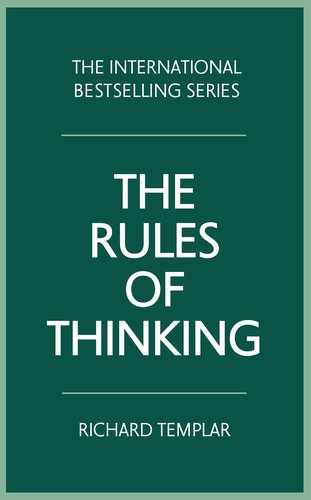Some of us just don’t like asking for help. Or rather, most of us don’t like asking for help some of the time. Personally, I’m happy to ask for help assembling flat-pack furniture, but I hate asking for help with map-reading. This is because I hate putting together flat-pack furniture and I don’t care who knows it, but I like to think I’m a good map reader and I don’t want to admit to any weakness at it.
I say weakness – of course it’s not really a weakness. That’s just my perception.20 If I’m as good as I think I am, it must be a very tricky bit of orienteering for me to need help. The truth (my family would tell you) is that I’m not as good as I think. I’m a very good map reader on paper (which is where maps traditionally are) but I have a tendency to think I’ve memorised the route so I toss the map to one side … and then can’t find it when the route doesn’t look quite as I expected.
This is all about self-image and perception. All of us are happy to ask for help in areas we have no ego about. I’ll readily take my car to the garage when it breaks down because I don’t see myself as a mechanic and I don’t expect anyone else to. However I don’t like to let on if I’m struggling with my writing, for example, because I’d hate anyone to think I didn’t know what I was doing.21
If you’re struggling to solve a problem on your own, it’s only logical to ask for advice. So you have to overcome your feeling that you’re in some way admitting defeat. That doesn’t actually make sense. You wouldn’t expect the government to take action without consultation, or a multinational company to launch in a new territory without taking any advice. So why expect yourself to raise a child, for example, without ever asking for anyone else’s input? And yet countless mothers and fathers like to see themselves as good parents, and think that if they ask for advice they’re broadcasting to the neighbourhood that they’re useless. That’s not how the neighbourhood sees it.
Listen, being able to ask for advice is a strength. It’s a skill in itself, to recognise when two heads will be better than one. You’ll still make the final call when it’s your problem that needs solving. And you’re not collapsing in a sobbing heap telling everyone you can’t cope. You’re approaching a fellow expert so you can pool ideas. If you were a car mechanic or a computer engineer and couldn’t fix a particular technical problem, wouldn’t you go and ask another engineer if they had any thoughts or experience that might help? So what’s the difference?
All the skills you ever use – cooking, installing software, raising kids, appointing staff, wrapping gifts, calming down angry customers – fall into one of three categories. One: you’re happy to ask for help because you don’t see yourself as skilled. Two: you never ever need help ever. Or three: everything else - all the things where you sit between being halfway decent and absolutely outstanding. Be honest with yourself about the areas where asking for advice doesn’t feel comfortable and remind yourself that it’s a sign of strength, not weakness. If you want to solve this problem, and you can’t do it alone, this is a barrier you need to overcome.
ALL OF US ARE HAPPY TO ASK FOR HELP IN AREAS WE HAVE NO EGO ABOUT
